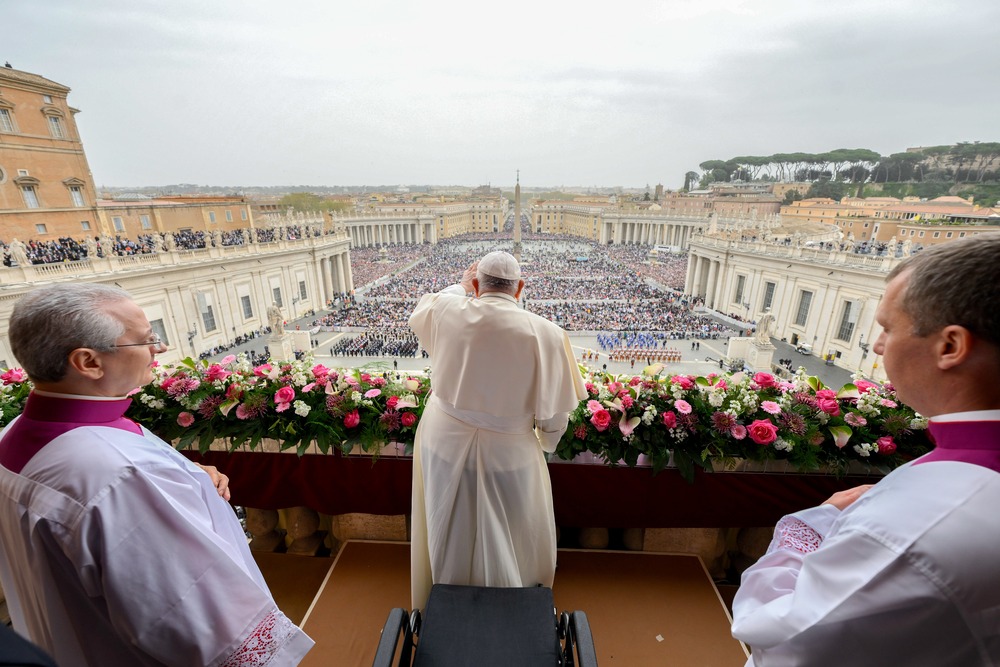
Pope Francis greets the crowd after delivering his Easter message and blessing "urbi et orbi" (to the city and the world) from the central balcony of St. Peter's Basilica at the Vatican March 31, 2024. (CNS/Vatican Media)
Pope Francis has made major changes to the Diocese of Rome, giving new positions to both Cardinal Angelo De Donatis, his vicar for the diocese since 2017, and Auxiliary Bishop Daniele Libanori, a Jesuit who has served as auxiliary for the past six years.
In appointments announced by the Vatican April 6, Francis named the 70-year-old De Donatis to be the major penitentiary or head of the Apostolic Penitentiary, a church court dealing with matters of conscience.
He succeeds Cardinal Mauro Piacenza, who had held the position since 2013 and will celebrate his 80th birthday in September.
Francis did not immediately name a new vicar for the Rome diocese.
The Vatican announcement said Libanori, who gained international attention for his strong defense of the women who accused former Jesuit Father Marko Rupnik of abuse, will become the "assessor of the Holy Father for consecrated life."
The Vatican did not explain what the assessor's duties would be. The position is not mentioned in "Praedicate Evangelium," Francis' 2022 constitution on the Roman Curia.
Advertisement
Libanori, whom Francis named an auxiliary bishop of Rome in 2017, was appointed in 2019 to investigate the Loyola Community, a religious community of women founded in Slovenia with the help and encouragement of Rupnik. In addition to defending the women who accused Rupnik of abuse, Libanori's investigation led to the Vatican ordering the disbanding of the Loyola Community.
In his new role at the Apostolic Penitentiary, De Donatis will focus on the church's ministries of reconciliation and forgiveness.
The "penitentiary" in the name Apostolic Penitentiary refers to the penitential issues it handles. The tribunal handles cases of conscience and absolves individuals from sins reserved to the Holy See and it oversees the granting and use of indulgences.
The office also commissions priests to serve as confessors in the major basilicas of Rome and runs an annual specialized course for priests on the sacrament of penance and conscience.







